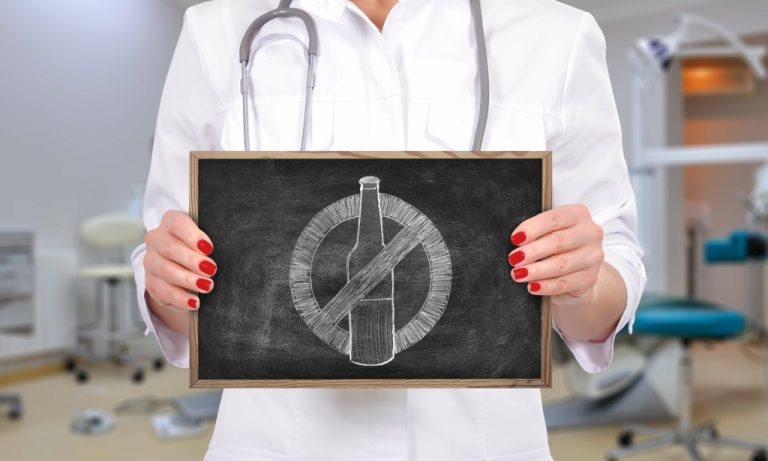Content
The antidepressant played havoc on his mind and body. He often expressed how he felt foggy and resented how it impacted our physical https://ecosoberhouse.com/. The combination of these effects shattered his self-esteem. For almost a year and a half, we experienced a new kind of rollercoaster until he found the proper medication and acceptance of its place as part of his treatment.
- Colleen’s goal is to help others discover what is not working in their lives and make lasting changes.
- I don’t think my husband and I ever really knew each other until I got sober.
- We’ve backed up enough to be moving forward again.
- They wonder what makes this time different, treading the relationship with fear as they did previously, fearing triggering an argument or a slip.
- Other couples may be shocked to find out the extent of a partner’s problems with drugs or alcohol.
For specific questions about your health needs or that of a loved one, seek the help of a healthcare professional. Drunkenly talking shit on the patio whilst chain smoking cigarettes used to be my favourite thing to do. I really appreciate the way you mentioned that these were really fun times, but irresponsible.
The Importance of Addiction Treatment for Marriage
He is the Lead Pastor at the Recovery Church Treasure Coast – PSL and heads up the 501c3 ministry of Mont Sinai Ministries Bayonnais, serving orphans and widows in Bayonnais Haiti. He is currently finishing his PhD in Pastoral Counseling. Lyle started his journey working in treatment by entering a program for his own addiction in the 90s. His first experience in treatment was as a cash-pay client in a high-end residential facility that “graduated” him as soon as his money ran out.
How do you stay married to a recovering addict?
- Help Yourself. Most importantly, you need to take care of yourself.
- Educate Yourself on Addiction.
- Detach With Love.
- Avoid Blame.
- Be Consistent with Boundaries.
- Don't Isolate.
- Practice Self-Care.
- Stage an Intervention.
Recovery is a process that takes time, and it’s important to focus on your sobriety first and foremost. That being said, there are things you can do to start rebuilding trust and communication with your spouse. Top Dog has been the mainstay of the family and doing most of the parenting. Underdog needs to be encouraged to take on more responsibility, while Top Dog needs to let go of control and stop enabling the addict by being super responsible. This is difficult for both and causes friction.
Making Smart Decisions about Love and Marriage
That may mean each spouse initially talking over things with their sponsor or therapist rather than confronting one other, except when it comes to abuse, which should be addressed. Perhaps there were other sober periods that didn’t last, so the belief is, “Why should this time be different? ” The spouse may continue to “walk on eggshells,” as he or she did living with addiction, afraid of precipitating an argument or a slip. Trust has been broken many times, and it will have to be rebuilt – a process that can’t be rushed. It can take time to recover your marriage during the recovery process, but support is available.
However, adding to the addict’s shame can undermine unstable abstinence. According to 2018 research, supportive relationships with family, spouses, and sponsors help those working toward sobriety sustain their recovery. It may require an intentional and lengthy process for both partners to learn how to rebuild trust within the relationship. But for most couples experiencing substance use, life after sobriety isn’t so smooth. This is because of the way long-term substance use has affected both partners as well as the relationship itself. The caretaking partner in codependent relationships may also assume this unhealthy role in other relationships as well.
Dating In Early Recovery
The time alone gave me space to do my own soul work and attend to my own life. Partners are accustomed to their roles – the addict being unreliable and dependent, and the partner being a super-responsible fixer. In Codependency for Dummies, I term these roles Underdog and Top Dog.

You can also become part of your partner’s recovery community, such as joining a local12-step group. Consider this self-care for both of you as a couple. The decision to pursue sobriety is major and life-changing, both for the addict and for the spouse. It can take a toll physically, as the person in recovery is going through withdrawal symptoms that can be very intense.
Ask Erin: I Think Sobriety Is Killing My Marriage
If you become codependent on your spouse, it’s important to seek help from a therapist or counselor who can help you learn how to set boundaries and take care of yourself. One of the biggest challenges of having a spouse who is not sober is that you may feel like you’re always walking on eggshells. It can be hard to relax and enjoy your life when you’re constantly worried about what your spouse is doing or whether they will make it home safe. Trust becomes a major issue, and it can be difficult to feel like you have a partner you can rely on. Addicts may also resent their dependency on their spouse and feel managed by them.

It is important to manage your expectations and self-educate on what early marriage after sobriety means for marriage in recovery. I’ve found statistics that indicate a 20% increase in divorce rate for couples dealing with alcoholism in the marriage. The overall divorce rate in the United States is roughly 50%, and it makes sense that addiction to alcohol adds significant challenges for couples to overcome in order to stay together. No, I don’t know all the specifics of your relationship. Still, I know from experience that most, if not all, relationships that exist when one or both people are in active addiction are unhealthy.
